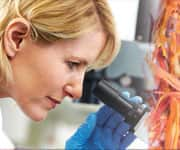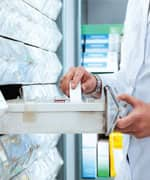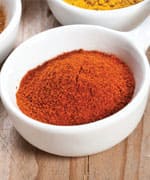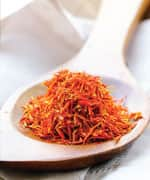Life Extension Magazine®

More Americans suffer from depression today than ever before. Reports from the Centers for Disease Control reveal that 1 in 10 US adults say they are suffering from depression,1 and by 2020, depression is expected to be the world’s second-leading cause of disability.2
But within this tragedy is another.
In the words of one 2013 study, this problem continues to escalate “after more than half a century of modern psychopharmacology, with billions of dollars spent on antidepressants annually world-wide.”3 Over the last 25 years, the use of antidepressant medication in the US has gone up 400%,4 and 11% of Americans aged 12 years and over now take antidepressant medication.4
The tragedy? About 90% of these patients experience at least one of the numerous serious side effects5-10—which can include anxiety, constipation, thoughts of suicide, insomnia, and weight gain.6-10 Also, a just-published study was the second report to find an association between the use of antidepressants during pregnancy and the risk of autism for the child.11 And one extremely common adverse effect afflicts as many as 73% of individuals who take antidepressants: sexual dysfunction.10
In fact, while antidepressants often lose their efficacy over the course of treatment,12 their sexual side effects can continue long after—even years after—drug use is discontinued!9
So in an attempt to avoid adverse reactions, many individuals are seeking alternatives to pharmaceutical medications.13
In this article, we unveil compelling new findings demonstrating that saffron (Crocus sativus) is equally as effective as certain current medication options in treating depression—but without the unwanted effects.14,15
We’ll also examine new evidence indicating that—when added to an existing regimen of antidepressants—saffron works as a powerful adjunct therapy to block their adverse sexual effects!16
You will also learn how saffron successfully—and safely—treats other conditions for which antidepressants are often prescribed, such as anxiety and obsessive-compulsive disorder.
Saffron Powerfully Targets Mood

Saffron was historically used for depression in Persian traditional medicine,17 but there was no evidence-based documentation back then.14 This early use led to modern-day research into saffron’s impact on mood.
Starting in 2001, research found that saffron extract produced a distinct antidepressant benefit.18 But this testing was conducted on mice.
Scientists needed to confirm this benefit in a more scientifically conclusive way—in a double-blind, randomized, human trial that compared saffron benefits to placebo.
A team conducted a 6-week, double-blind, placebo-controlled, single-center, and randomized trial on 40 adult outpatients who—when assessed in a structured clinical interview—were diagnosed as suffering from major depression according to the Diagnostic and Statistical Manual of Mental Disorders, 4th edition. They were randomly divided into two groups. One group was given a 30-milligram capsule of saffron twice daily and the other group was given a twice-daily placebo.17
At 6 weeks, the saffron subjects showed significantly better outcomes on the Hamilton depression rating scale than placebo, indicating “the efficacy of Crocus sativus [saffron] in the treatment of mild to moderate depression.”17
Also, there were no significant differences in observed adverse reactions. The author of the published study suggested further human trials.17
Scientists then set out to weigh the efficacy of saffron extract against common antidepressant drug medications.
Saffron ‘Equally Effective’ Against Depression As Antidepressants!
First, researchers directly compared the efficacy of saffron stigma extract to that of the antidepressant Tofranil® (imipramine) against significant degrees of depression.
In a double-blind, single-center trial, scientists randomly divided 30 depressed patients into two groups. They gave 30 milligram capsules of saffron 3 times daily to one group. The other group received 100 milligrams of Tofranil® 3 times daily. All subjects met the Diagnostic and Statistical Manual of Mental Disorders, 4th edition, criteria for major depression.14
Just 6 weeks later, the saffron dose was declared to be equally as beneficial as Tofranil® in the treatment of mild to moderate depression. However, only the Tofranil® group suffered anticholinergic symptoms, such as dry mouth. (An anticholinergic agent blocks the neurotransmitter acetylcholine in the nervous system.) Also, the participants taking Tofranil® experienced significant unwanted sedation. The study author concluded that saffron has “therapeutic benefit in the treatment of mild to moderate depression.”14
Next, scientists compared the potency of saffron extract to the antidepressant Prozac® (fluoxetine).
Forty adult outpatients who met the Diagnostic and Statistical Manual of Mental Disorders, 4th edition, criteria for depression were randomly assigned to receive either twice-daily 30-milligram capsulesof saffron stigma or twice-daily capsules of 20 milligrams of Prozac®.15
At the close of the 6-week, double-blind, randomized trial, saffron was found to be as effective as Prozac® in the treatment of mild to moderate depression. There were no significant differences in unwanted reactions.15
These studies clearly establish that saffron is a potent alternative to commonly prescribed antidepressants for treating depression—without the adverse effects.
Treating Other Emotional-Cognitive Disorders—Without the Side Effects!
Despite their name, antidepressants are used to treat more than depression. They are prescribed for a broad range of other emotional and cognitive conditions, such as obsessive-compulsive disorder, anxiety, and Alzheimer’s disease.19-22
Some scientists reasoned that—if saffron treats depression as effectively as antidepressant drugs—it may provide a safer treatment for these other conditions as well.
Several avenues of research were developed.
What You Need to Know
 |
Balance Brain Chemistry with Saffron
- Depression is a mushrooming health problem, now afflicting 1 in 10 American adults.
- Drug antidepressants are now regularly taken by 11% of Americans, 90% of whom suffer at least one of the numerous adverse effects that range from convulsions to abnormal bleeding to sexual dysfunction.
- Accumulating studies demonstrate that saffron (Crocus sativus) treats depression equally well but without these risky side effects.
- Other research reveals that saffron also successfully treats other conditions for which antidepressant medications are used, including anxiety, Alzheimer’s, and obsessive-compulsive disorder.
- Surprising new evidence now shows that, when saffron is added to the regimen of male and female patients already taking antidepressants, it reverses the sexual side effects associated with these drugs!
Alzheimer’s Disease
A 2013 report predicts America will have “tsunami of Alzheimer’s” within the next 40 years as the number of Americans living with the disease triples to nearly 15 million.23
Doctors commonly prescribe antidepressants for these patients, notably Zoloft® (sertraline)19—despite the fact that the published data strongly suggest that these medications are not efficacious for Alzheimer’s disease and frequently produce adverse reactions.24
To determine whether saffron would provide an alternative treatment, scientists set up a double-blind, randomized, and placebo-controlled trial. Each day, parallel groups of Alzheimer’s patients were given either capsules of 15 milligrams of saffron twice daily or placebo capsules twice a day. Standard assessment scales were used to monitor cognitive and clinical profiles.25
After 16 weeks, saffron produced significantly better cognitive function scores than placebo, prompting the study author to write that:
“Saffron is both safe and effective in mild to moderate [Alzheimer’s disease].”25
When further tested in a 22-week, multi-center, randomized, double-blind trial against the Alzheimer’s medication Aricept® (donepezil), saffron proved to be equally effective. However, many people in the Aricept® group experienced vomiting as a possible side effect of the medication.26
Anxiety
Anxiety conditions can be crippling, and the proportion of Americans who will have serious anxiety symptoms during some period of their life is about 29%.27
Selective serotonin reuptake inhibitors (SSRIs) are often recommended for the treatment of generalized anxiety disorders,20 and for social anxiety.21 But of course, they come with an array of negative reactions ranging from nausea to sexual dysfunction.6-9
Fortunately, animal studies have revealed a powerful—and safer—alternative.
Evidence demonstrates that treatment with active saffron constituents known as crocins induces anxiolytic-like (anxiety-reducing) benefits without adverse reactions.28
Also, the saffron compound safranal demonstrates anxiolytic benefits and increased total sleep time—but without any negative impact on motor coordination.29
Obsessive-Compulsive Disorder

Obsessive-compulsive disorder (OCD) can be so severe that it becomes disabling—those afflicted by this condition may spend virtually all of their time on their obsessions and compulsions.30
Most commonly, antidepressants are tried first, in an attempt to control the time-consuming and stressful symptoms.22 With obsessive-compulsive disorder, it’s not unusual to have to try several medications of differing dosages before finding one that exerts any degree of symptomatic control.22 Ultimately, different drugs may need to be combined,22 which of course, can result in multiple levels of negative symptoms that significantly offset the positive benefits.
The evidence suggests that there is a functional interaction between the crocins found in saffron and the serotonergic (serotonin-neurotransmitter) system,31 which led scientists to study the effect of saffron on obsessive-compulsive disorder.
In an animal model of this condition, crocin compounds from saffron were found to substantially reduce obsessive-compulsive disorder symptoms without significant adverse effects.31
Hyperphagia and Uncontrolled Eating
Obesity is now an epidemic. Meanwhile, neurotransmitter imbalances, particularly low levels of serotonin, have been shown to increase vulnerability to food cravings, overeating and obesity.32 The condition known as reactional hyperphagia, sometimes called reactional polyphagia, involves uncontrolled snacking and eating.33 Stress and dysregulated brain reward pathways have been strongly implicated.34-37
Unfortunately, appetite-suppressing medications have been documented to cause numerous and deadly effects—including heart valve damage, birth defects, liver injury, and increased blood pressure.38
Scientists hypothesized that a patented extract of saffron may reduce snacking and enhance satiety through its beneficial impact on the brain and mood. They launched a randomized, double-blind, placebo-controlled clinical trial with 60 mildly overweight, female volunteers, at least half of whom had been assessed as suffering from this type of compulsive between-meal snacking behavior. Subjects were randomly given either daily doses of 176.5 mg of patented saffron extract or a placebo. All subjects were instructed to maintain their normal dietary habits, and all between-meal snacking was recorded.37
Over 8 weeks, the number of snacking events for the placebo group decreased by 28%. In the saffron group, between-meal snacks decreased by 55% and they reported a reduced feeling of the “need” to snack!37
After 8 weeks and without any dieting, the saffron group had lost an average of 2 pounds and reported increased energy and alertness.37 These small weight loss results show how its takes more than reduced snacking to achieve meaningful weight loss.
Scientists concluded that saffron offers more than just an effective, side-effect-free alternative to prescription antidepressants in the treatment of depression—saffron also safely treats other conditions for which antidepressants are used: Alzheimer’s disease, anxiety, obsessive-compulsive disorder, and uncontrolled eating (reactional hyperphagia).19-22,25,29,37
But what about individuals whose doctors are reluctant to discontinue their regular prescription after finally managing, often years later, to stabilize the specific symptoms of their particular condition with just the right dosage of the right antidepressant—are they stuck with their current negative sexual effects?
Sexual Dysfunction Plagues Over Half of Antidepressant Users
Although antidepressants are associated with a wide array of negative reactions,6-10 adverse sexual effects—which can include loss of sexual drive, failure to reach orgasm and erectile dysfunction—are among the most common.9,10 While men are affected more often, women report more serious sexual side effects.10
These unwanted sexual symptoms are considered to be commonly underestimated.10 Still, research pegs the incidence of sexual dysfunction with selective serotonin reuptake inhibitors (SSRIs) and Effexor® (venlafaxine) to be between 58 and 73%!10 And these sexual symptoms can persist long after the medication has been discontinued—for months, years, or indefinitely!9
About 40% of people taking antidepressants report a low tolerance for their negative sexual effects,10 which can lead to non-compliance and relapse.39 This situation has prompted scientists to call on clinicians to “consider the impact of pharmacotherapy on patients’ sexual functioning.”39
Unfortunately, when depressed and even suicidal individuals have struggled for years with different antidepressants before finally attaining stable relief with a specific dosage of a specific drug—doctors are reluctant to change their regimen “simply” to avoid the sexual symptoms. (The same goes for the sexual complaints of those who have finally achieved success with antidepressants for other, non-depression conditions such as anxiety,40 eating disorders,41,42 and obsessive-compulsive disorder.41)
Instead, doctors often prescribe additional medications aimed at offsetting the sexual dysfunction caused by the antidepressants.43-47 But these added drugs bring their own adverse reactions48—and some even reverse the positive mood benefit of the original antidepressant!45
Scientists knew that, in addition to its antidepressant potency, saffron had shown aphrodisiac and other positive effects on sexual function in both animal and human studies.16,49-51
So what would happen, they wondered, if saffron were simply added to the antidepressant regimen of patients who suffered from serious sexual effects—but without dropping their current side-effect-producing antidepressants?
The results were startling.
Saffron Blocks the Sexual Side Effects of Antidepressants!

In late 2012, researchers tested the impact of saffron on the adverse sexual effects experienced by men who otherwise derived some benefit from, and continued to take, their prescribed antidepressant.16
A randomized, double-blind trial enlisted 36 married men with major depressive disorder whose symptoms had been successfully stabilized on Prozac®—but who had complaints of sexual impairment. They were randomly assigned to add to their usual dosages of Prozac® 2 daily doses of either 15 milligrams of saffron or a placebo. Sexual function was assessed using a standard index.16
After just 4 weeks, the men in the Prozac®-plus-saffron group had experienced significantly greater improvement in erectile function and intercourse satisfaction than the Prozac®-plus-placebo group. The team determined that saffron is a “tolerable and efficacious treatment” for male sexual dysfunction induced by Prozac®.16
Next, scientists set out to determine if saffron could similarly offset the unwanted sexual effects experienced by women whose depression was being successfully controlled by, and who continued to take, their antidepressant.49
In 2013, a team enlisted 38 women, all of whom had major depression that had been stabilized on Prozac®—but who continued to suffer from various types of sexual dysfunction induced by this antidepressant. In a double-blind study, half of the women were randomly assigned a supplement of 30 milligrams daily of saffron extract and the rest were assigned a placebo. All participants also continued to take their usual dosage of Prozac®, and assessments were made using the Female Sexual Function Index (FSFI).49
After 4 weeks—despite still taking the same antidepressant that had induced the unwanted sexual symptoms in the first place—women in the saffron group experienced significant improvement in total sexual function (FSFI), arousal, lubrication, and pain.49
Clearly, saffron offers a potent, adjunct therapy for treating the sexual side effects caused by taking antidepressants.
Reported Side Effects of Antidepressant Drugs
 |
There have been 119 published studies from twelve countries, as well as 99 drug regulatory agency warnings from ten countries plus the European Union, together indicating that antidepressants can cause the following adverse effects:6-10,70
|
|
|
Additional Saffron Benefits

Evidence also suggests that saffron may play a role in treating other diseases.
Cancer is a growing health concern worldwide, causing more than 7.5 million deaths each year,52 and botanical extracts have been one of the main sources for development of chemopreventive agents.53
Recent scientific evidence, both in vitro and in vivo, has suggested that saffron extract and its main active constituents can help inhibit carcinogenesis and tumor genesis.54-57 Rodent studies further demonstrate that saffron can reduce the serious negative effects of the anticancer drug Platinol® (cisplatin).58,59 These anticancer findings have prompted extensive current research on saffron and its components, including safranal and crocin, as promising preventive agents against cancer.
The mechanism for saffron’s anticancer potential is not known but may be related to its demonstrated free-radical-scavenging activity.60-62 In human studies, 50 milligrams of saffron dissolved in 100 ml of milk and consumed twice a day produced a significant decrease in lipoprotein oxidation susceptibility in individuals with coronary artery disease (CAD), further indicating the potential of saffron as an antioxidant.63
In animal research, crocin analogs isolated from saffron significantly increased blood flow in the retina and choroid (the layer between the retina and the outer sclera) and facilitated recovery of retinal function.64 This suggested that saffron might help combat certain eye conditions. Subsequently, several studies have confirmed that saffron demonstrates the ability to protect the retina from damage thereby acting to potentially slow the progress of the serious eye conditions such as macular degeneration and retinitis pigmentosa.65-67
Perhaps suggestive of other fertile areas for future investigations, traditional and folk medicine have long used saffron for numerous medical benefits, including as a remedy for pain (an analgesic), poor digestion, high blood pressure, high cholesterol, respiratory diseases, and as an aphrodisiac agent.68,69
Summary
Depression now afflicts 1 in 10 American adults,1 a number projected to explode.2
Part of this tragedy is the fact that 11% of Americans now use antidepressants.4 About 90%5 of these patients experience at least one of the numerous adverse effects6 of these drugs, which can include suicidal thoughts, anxiety, abnormal bleeding, and sexual dysfunction.6-10
In fact, although the effectiveness of antidepressants can diminish over the course of treatment,11 their sexual side effects can continue months, or even years, after these drugs have been discontinued!9
In light of these serious complications, scientists and patients have been seeking safer alternative therapies.17 Mounting research reveals that saffron (Crocus sativus) treats depression equally effectively—but without the unwanted effects.
Studies also show that saffron is just as effective against other conditions for which antidepressant drugs are commonly prescribed, such as obsessive-compulsive disorder, anxiety, and Alzheimer’s disease.
Remarkably, newly published evidence demonstrates that saffron also works as adjunct therapy to reverse the sexual side effects so frequently experienced by men and women taking antidepressants!
If you have any questions on the scientific content of this article, please call a Life Extension® Health Advisor at 1-866-864-3027.
References
- Available at: http://www.cdc.gov/features/dsdepression. Accessed April 18, 2013.
- Swartz HA, Rollman BL. Managing the global burden of depression: lessons from the developing world. World Psychiatry. 2003 Oct;2(3):162-3.
- Grundmann M, Kacirova I, Urinovska R. Therapeutic monitoring of psychoactive drugs - antidepressants: A review. Biomed Pap Med Fac Univ Palacky Olomouc Czech Repub. doi: 10.5507/bp.2013.020. Epub 2013 Mar 21.
- Available at: http://www.cdc.gov/nchs/data/databriefs/db76.htm#about. Accessed April 18, 2013.
- Available at: http://www.consumerreports.org/health/resources/pdf/best-buy-drugs/antidepressants_update.pdf. Accessed April 18, 2013.
- Available at: http://www.cchrint.org/psychiatric-drugs/antidepressantsideeffects. Accessed April 18, 2013.
- Coupland C, Dhiman P, Morriss R, Arthur A, Barton G, Hippisley-Cox J. Antidepressant use and risk of adverse outcomes in older people: population based cohort study. BMJ. 2011 Aug 2;343:d4551.
- Reynolds GP, Kirk SL. Metabolic side effects of antipsychotic drug treatment—pharmacological mechanisms. Pharmacol Ther. 2010 Jan;125(1):169-79.
- Csoka A, Bahrick A, Mehtonen O-P. Persistent sexual dysfunction after discontinuation of selective serotonin reuptake inhibitors. J Sex Med. 2008;5:227-33.
- Montejo AL, Llorca G, Izquierdo JA, Rico-Villademoros F. Incidence of sexual dysfunction associated with antidepressant agents: a prospective multicenter study of 1022 outpatients. Spanish Working Group for the Study of Psychotropic-Related Sexual Dysfunction. J Clin Psychiatry. 2001;62 Suppl 3:10-21.
- Rai D, Lee BK, Dalman C, Golding J, Lewis G, Magnusson C. Parental depression, maternal antidepressant use during pregnancy, and risk of autism spectrum disorders: population based case-control study. BMJ. 2013 Apr 19;346:f2059. doi: 10.1136/ bmj.f2059.
- Byrne SE, Rothschild AJ. Loss of antidepressant efficacy during maintenance therapy: possible mechanisms and treatments. J Clin Psychiatry. June 1998;59(6):279-88.
- Freeman MP, Mischoulon D, Tedeschini E, et al. Complementary and alternative medicine for major depressive disorder: a meta-analysis of patient characteristics, placebo-response rates, and treatment outcomes relative to standard antidepressants. J Clin Psychiatry. 2010 Jun;71(6):682-8.
- Akhondzadeh S, Fallah-Pour H, Afkham K, et al. Comparison of Crocus sativus L. and imipramine in the treatment of mild to moderate depression: a pilot, double-blind randomized trial. BCM Comp Altern Med. 2004;4:12.
- Noorbala AA, Akhondzadeh S, Tahmacebi-Pour N, Jamshidi AH. Hydroalcoholic extract of Crocus sativus L. versus fluoxetine in the treatment of mild to moderate depression: a double-blind, randomized pilot trial. J Ethnopharmacol. 2005;97:281-4.
- Modabbernia A, Sohrabi H, Nasehi AA, et al. Effect of saffron on fluoxetine-induced sexual impairment in men: randomized double-blind placebo-controlled trial. Psychopharmacology (Berl). 2012;223(4):381-8.
- Akhondzadeh S, Tahmecebi-Pour N, Noorbala AA, et al. Crocus sativus L. in the treatment of mild to moderate depression: a double-blind, randomized and placebo-controlled trial. Phytother Res. 2005;19:148-51.
- Karimi G, Hosseinzadeh H, Khaleghpanah P. Study of antidepressant effect of aqueous and ethanolic of Crocus sativus in mice. Iranian J Basic Med Sci. 2001;4:11-5.
- Modrego PJ. Depression in Alzheimer’s disease. Pathophysiology, diagnosis, and treatment. J Alzheimers Dis. 2010;21(4):1077-87.
- Available at: http://www.nice.org.uk/nicemedia/live/13314/52599/52599.pdf. Accessed April 19, 2013.
- Available at: http://www.mayoclinic.com/health/generalized-anxiety disorder/DS00502/DSECTION=treatments-and-drugs. Accessed April 19, 2013.
- Available at: http://www.mayoclinic.com/health/obsessive-compulsive-disorder/ds00189/dsection=treatments-and-drugs. Accessed April 19, 2013.
- Available at: http://vitals.nbcnews.com/_news/2013/02/06/ 16872274-alzheimers-numbers-to-triple-by-2050-report-says?lite. Accessed April 19, 2013.
- Banerjee S, Hellier J, Romeo R, et al. Study of the use of antidepressants for depression in dementia: the HTA-SADD trial - a multicentre, randomised, double-blind, placebo-controlled trial of the clinical effectiveness and cost-effectiveness of sertraline and mirtazapine. Health Technol Assess. 2013 Feb;17(7):1-166.
- Akhondzadeh S, Sabet MS, Harirchian MH, et al. Saffron in the treatment of patients with mild to moderate Alzheimer’s disease: a 16-week, randomized and placebo-controlled trial. J Clin Pharm Ther. 2010 Oct;35(5):581-8.
- Akhondzadeh S, Shafiee Sabet M, Harirchian MH, et al. A 22-week, multicenter, randomized, double-blind controlled trial of Crocus sativus in the treatment of mild-to-moderate Alzheimer’s disease. Psychopharmacology (Berl). 2010 Jan;207(4):637-43.
- Kessler RC, Berglund P, Demler O, Jin R, Merikangas KR, Walters EE. Lifetime prevalence and age-of-onset distributions of DSM-IV disorders in the National Comorbidity Survey Replication. Arch Gen Psychiatry. Jun 2005;62(6):593-602.
- Pitsikas N, Boultadakis A, Georgiadou G, Tarantilis PA, Sakellaridis N. Effects of the active constituents of Crocus sativus L., crocins, in an animal model of anxiety. Phytomedicine. 2008 Dec;15(12):1135-9.
- Hosseinzadeh H, Noraei NB. Anxiolytic and hypnotic effect of Crocus sativus aqueous extract and its constituents, crocin and safranal, in mice. Phytother Res. 2009 Jun;23(6):768-74.
- Available at: http://www.mayoclinic.com/health/obsessive- compulsive-disorder/DS00189/DSECTION=symptoms. Accessed April 22, 2013.
- Georgiadou G, Tarantilis PA, Pitsikas N. Effects of the active constituents of Crocus sativus L., crocins, in an animal model of obsessive-compulsive disorder. Neurosci Lett. 2012 Oct 18;528(1):27-30.
- Dye L, Blundell JE. Menstrual cycle and appetite control: implications for weight regulation. Hum Reprod. 1997 Jun;12(6):1142-51.
- Available at: http://www.hyperphagia.com/hyperphagia-causes. Accessed April 22, 2013.
- Adam TC, Epel ES. Stress, eating and the reward system. Physiol Behav. 2007;91:449-58.
- Alsiö J, Olszewski PK, Levine AS, Schiöth HB. Feed-forward mechanisms: addiction-like behavioral and molecular adaptations in overeating. Front Neuroendocrinol. 2012 Apr;33(2):127-39.
- Berthoud HR, Lenard NR, Shin AC. Food reward, hyperphagia, and obesity. Am J Physiol Regul Integr Comp Physiol. 2011 Jun;300(6):R1266-77.
- Gout B, Bourges C, Paineau-Dubreuil S. Satiereal, a Crocus sativus L extract, reduces snacking and increases satiety in a randomized placebo-controlled study of mildly overweight, healthy women. Nutr Res. 2010 May;30(5):305-13.
- Available at: http://www.mayoclinic.com/health/weight-loss-drugs/wt00013/nsectiongroup=2. Accessed April 22, 2013.
- Lee KU, Lee YM, Nam JM, et al. Antidepressant-induced sexual dysfunction among newer antidepressants in a naturalistic setting. Psychiatry Investig. 2010 Mar;7(1):55-9.
- Kapczinski F, Lima MS, Souza JS, Schmitt R. Antidepressants for generalized anxiety disorder. Cochrane Database Syst Rev. 2003;(2):CD003592.
- Available at: http://www.nice.org.uk/nicemedia/pdf/cg031niceguideline.pdf. Accessed April 22, 2013.
- Available at: http://www.guidelines.gov/content.aspx?id=9318+. Accessed April 22, 2013.
- Landen M, Eriksson E, Agren H, Fahlen T. Effect of buspirone on sexual dysfunction in depressed patients treated with selective serotonin reuptake inhibitors. J Clin Psychopharmacol. 1999; 19(3):268-71.
- Gupta S, Droney T, Masand P, Ashton AK. SSRI-induced sexual dysfunction treated with sildenafil. Depress Anxiety. 1999;9(4):180-2.
- Aizenberg D, Zemishlany Z, Weizman A. Cyproheptadine treatment of sexual dysfunction induced by serotonin reuptake inhibitors. Clin Neuropharmacol, 1995;18(4):320-4.
- Clayton AH, McGarvey EL, Abouesh AI, Pinkerton RC. Substitution of an SSRI with bupropion sustained release following SSRI-induced sexual dysfunction. J Clin Psychiatry. 2001;62(3):185-90.
- Woodrum ST, Brown CS. Management of SSRI-induced sexual dysfunction. Ann Pharmacother. 1998;32(11):1209-15.
- Feder R. Reversal of antidepressant activity of fluoxetine by cyproheptadine in three patients. J Clin Psychiatry. 1991;52(4):163-4.
- Kashani L, Raisi F, Saroukhani S, et al. Saffron for treatment of fluoxetine-induced sexual dysfunction in women: randomized double-blind placebo-controlled study. Hum Psychopharmacol. 2013 Jan;28(1):54-60.
- Shamsa A, Hosseinzadeh H, Molaei M, Shakeri MT, Rajabi O. Evaluation of Crocus sativus L. (saffron) on male erectile dysfunction: a pilot study. Phytomedicine. 2009;16(8):690-3.
- Hosseinzadeh H, Ziaee T, Sadeghi A. The effect of saffron, Crocus sativus stigma, extract and its constituents, safranal and crocin on sexual behaviors in normal male rats. Phytomedicine. 2008;15(6-7):491-5.
- Available at: http://www.who.int/mediacentre/factsheets/fs297/en/index.html. Accessed April 22, 2013.
- Available at: http://preventcancer.aicr.org/site/docserver/e81-tlpw.pdf?docid=1861. Accessed April 22, 2013.
- Escribano J, Alonso GL, Coca-Prados M, Fernandez JA. Crocin, safranal and picrocrocin from saffron (Crocus sativus L.) inhibit the growth of human cancer cells in vitro. Cancer Lett. 1996;100(1-2):22-30.
- Chryssanthi DG, Lamari FN, Iatrou G, Pylara A, Karamanos NK, Cordopatis P. Inhibition of breast cancer cell proliferation by style constituents of different Crocus species. Anticancer Res. 2007;27(1A):357-62.
- Abdullaev JF, Caballero-Ortega H, Riverón-Negrete L, et al. In vitro evaluation of the chemopreventive potential of saffron. Rev Invest Clin. 2002;54(5):430-6.
- Abdullaev FI. Cancer chemopreventive and tumoricidal properties of saffron (Crocus sativus L.). Exp Biol Med. 2002;227:20-5.
- Nair SC, Salomi MJ, Pannikar. B, Pannikar KR. Modulatory effects of the extracts of saffron and Nigela sativa against cisplatinum induced toxicity in mice. J Ethnopharmacol. 1991;31:75-83.
- el Daly ES. Protective effect of cysteine and vitamin E, Crocus sativus and Nigella sativa extracts on cisplatin-induced toxicity in rats. J Pharm Belg. 1998 Mar-Apr;53(2):87-93; discussion 93-5.
- Hosseinzadeh H, Sadeghnia HR. Safranal, a constituent of Crocus sativus (saffron), attenuated cerebral ischemia induced oxidative damage in rat hippocampus. Jour Pharm Pharmaceut Sci. 2005;8(3):394-9.
- Assimopoulou AN, Sinakos Z, Papageorgiou VP. Radical scavenging activity of Crocus sativus L. extract and its bioactive constituents. Phytother Res. 2005 Nov;19(11):997-1000.
- Papandreou MA, Tsachaki M, Efthimiopoulos S, Cordopatis P, Lamari FN, Margarity M. Memory enhancing effects of saffron in aged mice are correlated with antioxidant protection. Behav Brain Res. 2011 Jun 1;219(2):197-204.
- Verma SK, Bordia A. Antioxidant property of saffron in man. Indian J Med Sci. 1998;52:205–7.
- Xuan B, Zhou YH, Li N, Min ZD, Chiou GC. Effects of crocin analogs on ocular blood flow and retinal function. J Ocul Pharmacol Ther. 1999 Apr;15(2):143-52.
- Yamauchi M, Tsuruma K, Imai S, et al. Crocetin prevents retinal degeneration induced by oxidative and endoplasmic reticulum stresses via inhibition of caspase activity. Eur J Pharmacol. 2011 Jan 10;650(1):110-9.
- Maccarone R, Di Marco S, Bisti, S. Saffron supplement maintains morphology and function after exposure to damaging light in mammalian retina. Invest Ophth Visual. 2008 Mar;49(3):1254-61.
- Falsini B, Piccardi M, Minnella A, et al. Influence of saffron supplementation on retinal flicker sensitivity in early age-related macular degeneration. Invest Ophthalmol Vis Sci. 2010 Dec;51(12):6118-24.
- Moghaddasi MS. Saffron chemicals and medicine usage. Jour Med Plants Res. 2010 Mar 18;4(6):427-30.
- Hosseinzadeh H, Nassiri-Asl M. Avicenna’s (Ibn Sina) the Canon of Medicine and caffron (Crocus sativus): A Review. Phytother Res. 2013 Apr;27(4):475-83.
- Available at: http://www.fdable.com/basic_query/aers/08ced09907b9a949e92270776a382535. Accessed April 22, 2013.

